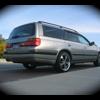Skyline / Stagea / Rb25 / Rb26 Reliability
Announcements
-
Similar Content
-
Latest Posts
-
So, they admitted via message that they accidentally sent me a non Hella product. Then, hilariously, out of nowhere I get questioned about the legitimacy of my BMW intercooler for sale. This is the first *ever* enquiry in over 18 months. WIthin 8 mins of me telling "Total Engines" that I'd be reporting them for selling knock off's.
-
By soviet_merlin · Posted
I don't know what it is supposed to look like, but I'd suggest confirming with Hella whether it is genuine. Some of the photos online do show parts with a Hella stamp on them. This looks sus. -
Couldn't help but share the pics of my $350 "Hella" oil level sensor that arrived from totalengines via eBay today. It's like they're not even trying anymore ... And I think that's sad.
-
I've got a 2011 J50 that I imported six years ago. The unmodified factory AV system date and time has always been correct ( Japanese timezone of course ) up until last month. About two weeks ago, at engine start, the system wished me a happy new year ( in Japanese of course ). I can't think of anything that would make the system think that the date had changed, unless the GPS component has failed/reset somehow ? I checked the GPS reception in the system settings, and it can still see the satellites. Has any other J50 owner had this happen ? It's no biggie, just annoying that it tells me the wrong date anytime I start the engine. 😅
-




Recommended Posts
Create an account or sign in to comment
You need to be a member in order to leave a comment
Create an account
Sign up for a new account in our community. It's easy!
Register a new accountSign in
Already have an account? Sign in here.
Sign In Now